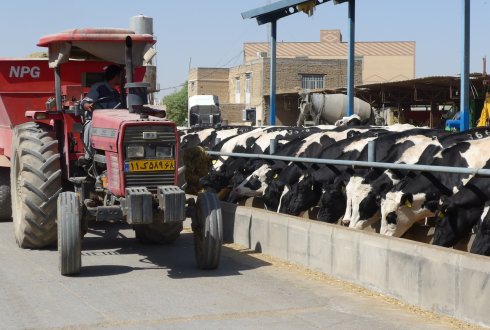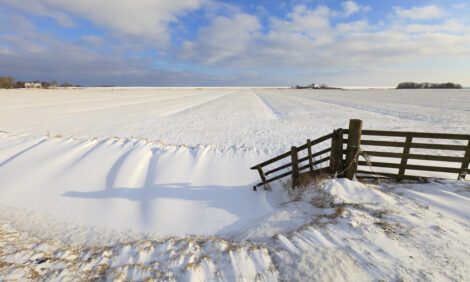



Dutch knowledge can help Iranian dairy chain to move forward
The Iranian dairy sector can produce higher quality dairy products in a more sustainable way by using Dutch expertise in the following four areas: milk quality assurance, feed supply including quality assurance, efficient water use and education.The Netherlands has a lot to offer in all these areas. The Iranian dairy sector would like to use Dutch knowledge to strengthen the dairy chain and ultimately be able to export to countries in the region. Any cooperation can also have a positive economic effect for Dutch companies in the dairy chain. Wageningen University & Research has therefore investigated the possibilities for Dutch-Iranian cooperation on behalf of the Ministry of Economic Affairs.
Dairy production in Iran has risen to nearly 9 billion kg per year. At the moment, however, production and quality are not sufficient to be able to export. Dutch technology and knowledge can contribute to better cooperation between all links in the dairy chain. This is to lift the production and quality of the dairy to a higher level and to gain more confidence within the chain. Objectively determining the quality of the milk and payment based on that quality by an independent institute is seen as a useful step in that process.
Water is scarce in Iran and the government therefore attaches great importance to a more efficient use of water. The Netherlands has extensive international experience with water-efficient crop production, both at farm level and in organizing water management at regional and national level. The proper training of employees is also mentioned by Iranian dairy farmers as an opportunity for cooperation with Dutch partners. In addition, the changes in Iran mean that dairy farmers themselves also need more skills and knowledge about strategic and economic decisions.
The research shows that a large part of the milk production in Iran comes from professional dairy farms with more than 150 cows. Some of these companies fall under state-owned holding companies. There does not appear to be a policy aimed at supporting small businesses. There is also a great lack of reliable data about the sector. These themes, as well as the import of feed (additives), medicines, machines and tools (for example biogas technology), emerge from the research as opportunities for the Iranian dairy sector. However, the aforementioned four themes have the highest priority.


